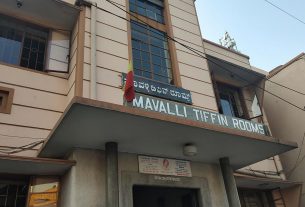Karnataka government’s menstrual hygiene initiative is yet to attain its objective of providing free sanitary napkins to girls at schools.
Neetu Saini
Schools in Mudhol have raised concerns about the shortage of Suchi kits provided to them by the Educational block. Out of the 13 packets of sanitary napkins each female student should be receiving per year, the girls receive only six packets . Lack of sanitary napkins has left girls with the option of using cotton clothes during periods.
“The quality of the sanitary pads is a major concern, as the size of the sanitary pads provided is 22 cm each which is unlikely to fit girls of all ages.The pads in ‘Suchi kits’ do not have enough absorption capacity and often cause leakage,” said Razia Aktar, science teacher at Urdu School. Many girls have complained of rashes and itching caused by the pads, she added.
Affordable Suvidha sanitary napkins are available for Rs. 2.50 per pad at over 3200 Janaushadhi Kendras across India, but due to the lack of awareness, girls in the rural areas could not reap the benefits of the subsidized medical facilities.
Lata Patil, physical education teacher said, “There are no workshops conducted for teachers to educate the adolescent girls on menstrual hygiene. On ground level, we try to inform students about the basic hygiene that should be maintained during their periods. But no awareness programmes have been carried out by any of the NGOs in years on menstrual hygiene.”
“We’ve sent a letter to the Educational block officer raising our concern about the sanitary pads distribution in the schools, but the request seems to fall on deaf ears,” said MV Bisti, the headmaster of Mudhol Urdu Modern school.
Apart from that the school lack basic amenities like proper water supply in toilets, dustbins for the disposal of sanitary napkins and cleaning staff. The school has one toilet for girls and one for boys even though the girl, boy ratio is 9:1.
The records of Directorate of Health and Family Welfare shows that the Karnataka government spends Rs. 49 Crore annually for the scheme and 31, 32,175 girls from 2175 schools are enrolled from both urban and rural areas in Bengaluru.
“We distribute the Suchi kits in all the government school once in a year. The schools are responsible for keeping a count of the number of girls in the schools. It’s difficult to keep a track,” said an Educational block officer in Mudhol. “We distribute what we receive accordingly. The department has planned to propose mandatory menstrual hygiene awareness in all the schools soon,” he added.
Girls in the government schools don’t have proper knowledge of the consequences of not maintaining hygiene in periods. The chances of getting fungal infections and urinary tract infection are high in women for not using pads during menstruation. Improper disposal of the sanitary napkins can cause environmental problems.
Rural India has a long way to go when it comes to medical health facilities and menstrual hygiene awareness. Dr. Vinutha Patil, a medical practitioner said, “Not many women in rural areas know how to use pads and also out of them only few know the safe disposal of pads. This isn’t their fault, these women are not accustomed to using pads. This is where the role of NGO and Anganvadi comes; awareness and communication are the keys; only then can the girls get proper access to menstrual hygiene.”



